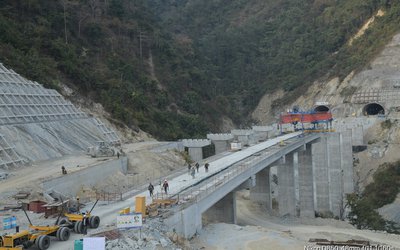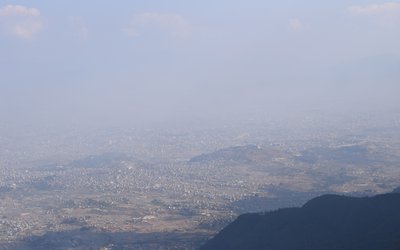
At a time when Tuberculosis (TB) cases are rising alarming throughout Nepal and the country has been taking initiative to contain it, Joint External Monitoring Mission (JEMM) concluded adopting various resolutions and commitments.
Conducted every five years to assess the impact of the National Tuberculosis (TB) Control Program on the TB epidemic in the country, JEMM evaluates progress of the national strategic plans; and provide clear, strategic, prioritized recommendations.
Despite many progress, TB is the 7th leading cause of death in Nepal, and causes nearly 5,000 – 9,000 deaths every year. According to data, males are reported nearly 1.6 times more than female of developing TB and children accounts for 6% of the cases. Each day 123 new TB cases are reported. Additionally, 27 % (i.e 34 TB cases) which also develops TB, is missed to be reported into the program.
“They are either not diagnosed, or not reported even if diagnosed. 18 deaths are attributed to TB. 34 new cases develop. Despite the challenges, once diagnosed, the success rates of TB treatment through the program are more than 90%. Most of the cases being reported are from Terai region (around 57%) among eco terrain, and from Province 3 (nearly 1/4 of cases) among all provinces,” said a press release.
In the JEMM meeting, Nepal has expressed its commitment to accelerate TB response and increase investment in TB and reach the End TB targets by 2035. More on TB: Improving TB services will not only cure people from TB but will be able to generate economy for the country and reduce poverty.
Addressing the mission, deputy prime minister and Minister of Health Upendraa Yadav said that the government will take all necessary steps to contain TB.
The last JEMM for Nepal was conducted in 2013. To meet the milestones of End TB Strategy and address issues of TB control in Nepal, it will require implementing bold policies that guarantee access to high-quality TB care and prevention to all who need it.
This is also part of Universal Health Care agenda which Nepal is pursuing with dedication. Achievements Nepal has successfully established a nationwide National TB Program (NTP) headed by the National Tuberculosis Centre (NTC) and has notified and treated more than 32,000 cases annually for the last 10 years.
The NTP has delivered nation-wide comprehensive services for management of drug sensitive TB patients and recently has rolled out a life-saving care system for multi-drug resistant TB (MDR-TB) cases. Effective collaboration with the National Centre for AIDS and STD Control (NCASC) has ensured that most TB patients receive HIV screening, and now, 94% of HIVinfected TB patients receive anti-retroviral treatment (ART).
NTP has introduced modern rapid diagnostic technology (GeneXpert), new TB drugs and new regimens for treatment of MDR-TB, an electronic reporting system now in 46 districts, started a collaboration with the private sector to ensure proper management of patients attending there, and begun a program to find and treat children with TB. Treatment success had been maintained over 90% over last many years which is excellent.
As Nepal is transitioning towards federalization, there are opportunities that can be addressed and harnessed to ensure that quality TB services are essential part of border health service delivery agenda. Nepal will need to address persistent health system issues and significantly increase investments in TB from both the domestic and external funding sources to meet the End TB Targets. Despite consistant program efforts, the case notification is static around 32,000 for past the 5 years, and 13,000 cases are missed each year.
Sustainability of essential TB functions in the federal context is a huge challenge if stakeholders fail to invest in human and financial resources on time. There is a need to hugely expand the newer diagnostic tools of TB. People who are diagnosed are not always reported and followed up until end of the treatment. Patients spend huge amount of money in diagnosis and treatment, and lose wages while they are sick. Hence, this disease can drive families to poverty. Together with all the other UN member states, Nepal has committed to end TB by 2035 at the regional and global high-level forum, and undertook to follow the WHO End TB Strategy.
TB has one of the highest return on investments, and as per economists, every dollar invested in TB has USD 43 in return. Hence, it is very much worth investing in TB.
- K Kathmandu-Tarai/Madhes Expressway Project: 37.56 Percent Completed, President Paudel Paid A Site Visit
- Jan 18, 2025
- Weather Forecast: Partly To Generally Cloudy In Karnali And Sudur Paschim Province
- Jan 18, 2025
- Nepal Welcomes The Recent Agreement For The Release of Hostage And Ceasefire In Gaza
- Jan 17, 2025
- Ambassador Of Israel To Nepal Pays A Courtesy Call On Prime Minister Oli
- Jan 17, 2025
- A Nepali Citizen Illegally Stranded In Laos Rescued
- Jan 17, 2025















